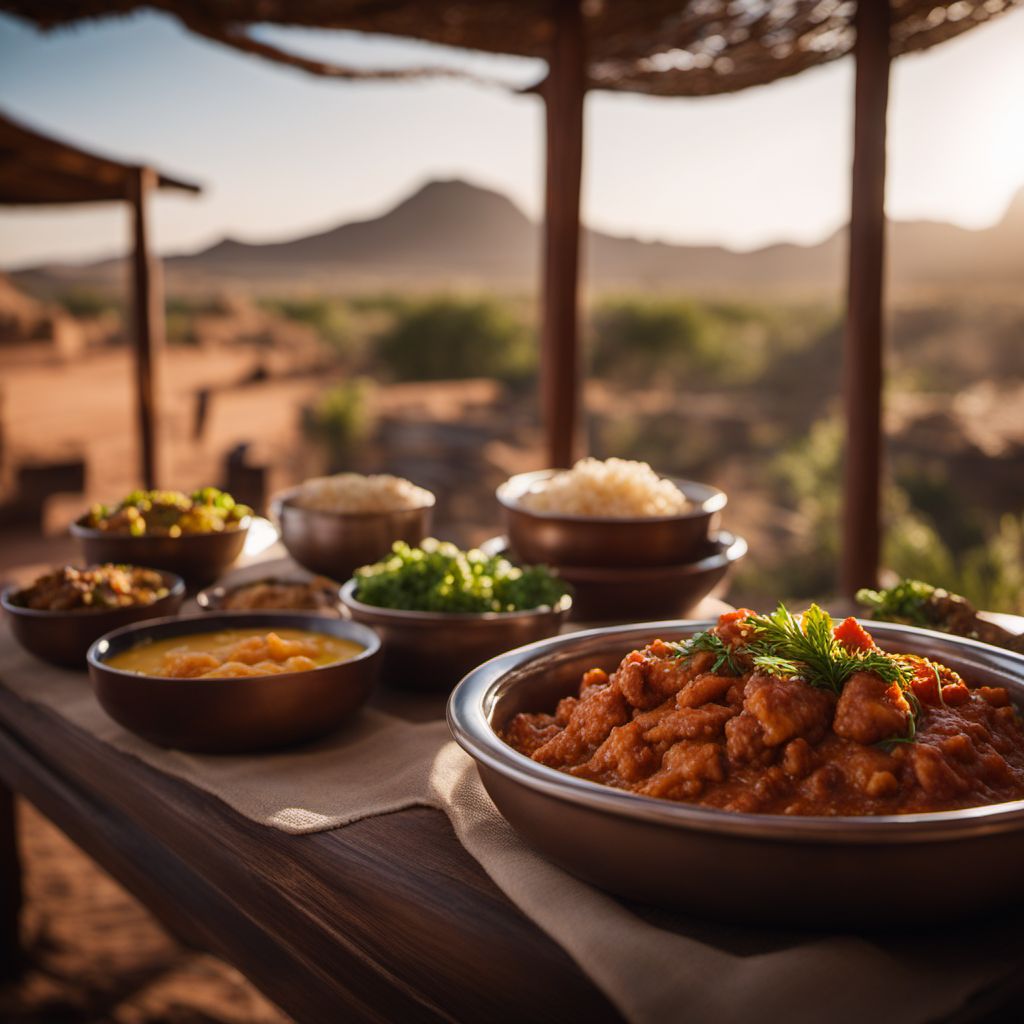
Cuisine
Southern African cuisine
Southern African cuisine is a diverse mix of flavors and ingredients that vary by region. It includes dishes such as bobotie, a savory meat pie with a custard topping, and chakalaka, a spicy vegetable relish. The cuisine also features a variety of grilled meats, stews, and soups. Southern African cuisine is heavily influenced by the region's history of colonization and trade, with European, Indian, and Asian flavors all playing a role.
Typical ingredients
Meat (beef, lamb, goat, game), Maize, Beans, Sweet potatoes, Cassava, Peanuts, Chilies, Tomatoes, Onions, Garlic, Ginger, A variety of spices (such as coriander, cumin, turmeric)
- The use of spices in Southern African cuisine is thought to have originated from the region's trade with India and Southeast Asia. - Many traditional Southern African dishes are cooked over an open flame, giving them a unique smoky flavor. - The region's cuisine has been influenced by the migration of people from other parts of Africa, such as the Bantu people who brought with them new ingredients and cooking techniques.
More cuisines from this region...
South African cuisine, Malagasy cuisine, Mauritian cuisine, Malawian cuisine, Mozambican cuisine, Seychellois cuisine, Zambian cuisine, Zimbabwean cuisine, Botswana cuisine, Namibian cuisine
History
Southern African cuisine has a rich history that dates back thousands of years. The region's indigenous people relied on hunting and gathering for their food, and developed a deep knowledge of the local flora and fauna. With the arrival of European colonizers in the 17th century, new ingredients and cooking techniques were introduced, leading to the fusion of African and European cuisine that is seen today.
Cultural significance
Southern African cuisine is an important part of the region's cultural heritage, and is often served at special occasions such as weddings and funerals. It is also a source of national pride, with many countries in the region promoting their local cuisine as a tourist attraction.
Health benefits and considerations
Southern African cuisine is generally high in protein and fiber, but can also be high in fat and sodium depending on the dish. Some traditional dishes may also be high in calories and carbohydrates. It is important to balance traditional dishes with healthier options such as grilled meats and vegetable dishes.
Southern African cuisine recipes Browse all »

Southern African Spiced Sausage Stroganoff
Savory Sausage Delight: Southern African Spiced Stroganoff
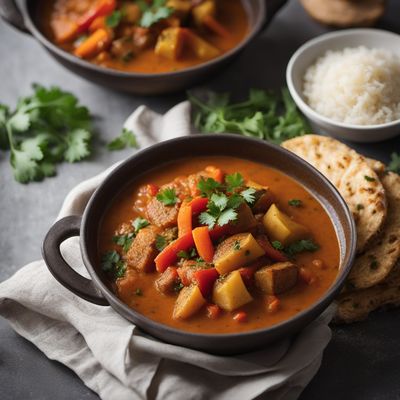
Southern African Spiced Potato Stew
Savory Spice Delight: Southern African Potato Stew

Malawach with Spiced Tomato Chutney
Flaky Malawach Delight with Tangy Tomato Chutney

Biscotto di Sant'Antonio with a Southern African Twist
Spiced Coconut Biscuits: A Fusion of Italian and Southern African Flavors

Southern African Spiced Beef Stir-Fry
Savory Spice Fusion: Southern African Spiced Beef Stir-Fry

Southern African Spumoni
Tropical Delight: Southern African Spumoni
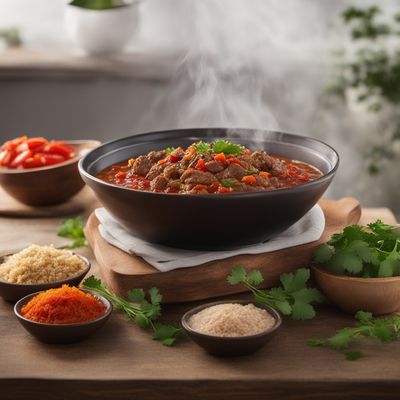
Mastel with a Southern African Twist
Spicy Braised Beef with African Flavors
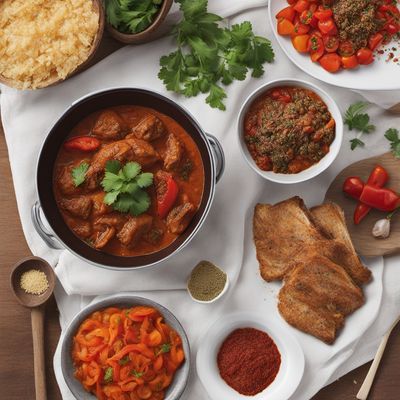
Southern African Spiced Goose Stew
Savory Delight: Southern African Spiced Goose Stew
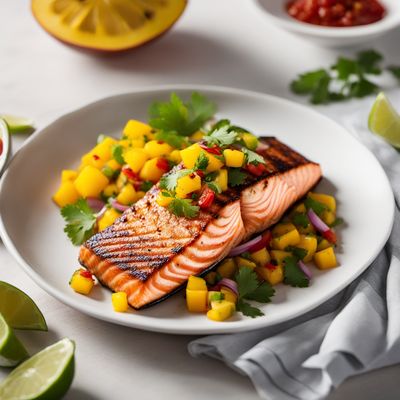
Grilled Salmon with Spicy Mango Salsa
Fiery Grilled Salmon with Tropical Mango Salsa

Creamy Bunny Stew
Savory Creamy Bunny Stew: A Taste of Southern African Delight

Paneer Naan with Spiced Tomato Chutney
Savory Paneer Stuffed Flatbread with Tangy Tomato Chutney
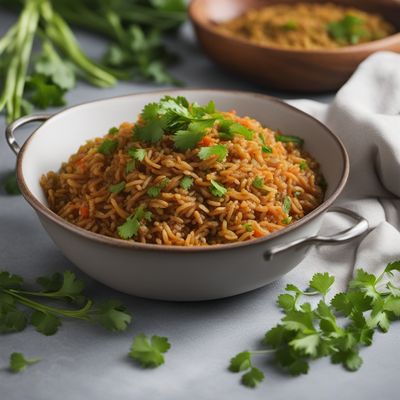
Spiced Lentil Rice
Savory Lentil Rice Delight